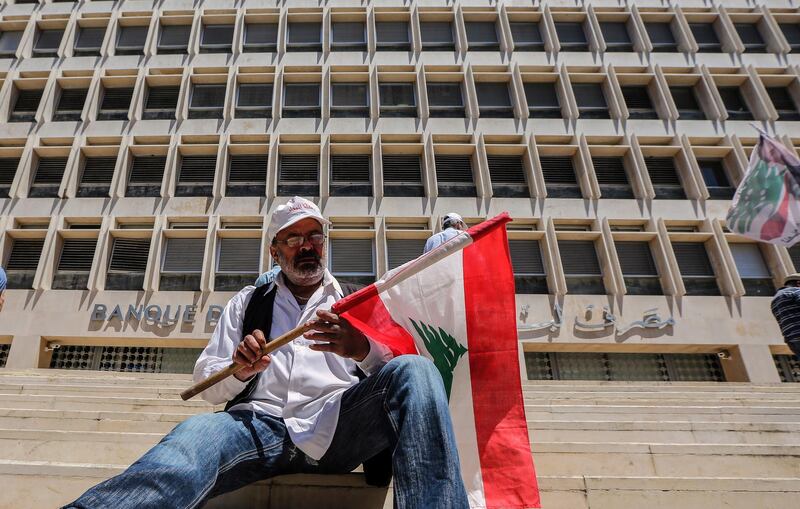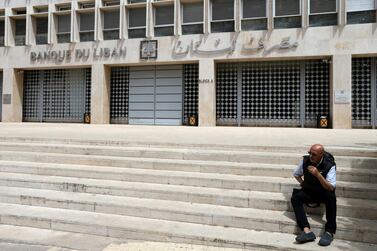The Lebanese Cabinet agreed on a 2019 draft budget Friday that aims to reduce its ballooning deficit and avert a financial crisis for one of the most indebted countries in the world.
The government of Prime Minister Saad Hariri seeks to reduce the budget deficit to 7.5 per cent of gross domestic product from the current 11.5 per cent through spending cuts and tax increases in the country, whose debt-to-GDP ratio at 150 per cent is only behind countries such as Japan, Venezuela and Sudan.
The push to get the draft budget approved by the Cabinet has been repeatedly delayed over the last few weeks. One more meeting will be held at the presidential palace on Monday, according to reports, before the draft is referred to parliament for approval, which is critical as the law makers in the past have rejected draft budget proposals by the government.
Narrowing the fiscal deficit is key to unlocking $11 billion (Dh40.4bn) in loans and grants pledged by international donors at the Cedre conference in Paris last year.
However, the government plan of raising taxes and cutting the public wage has given rise to public discontent in the country. There have been weeks of protests and strikes from public sector employees and military veterans, who fear that the budget will lead to salary, pension and benefit cuts.
Both the International Monetary Fund and the Institute of International Finance have urged the government to find ways to raise revenue collection and curb spending.
One of the key steps to structural reforms of the country's economy and its recovery is to explore “serious revenue-enhancing measures”, accompanied by significant cuts in non-productive expenditures, IIF said last week. Reforming the wage bill to minimise the negative impact on poorer segments of the population and restructuring the utility company Electricite du Liban, which has been bleeding funds, have to be the priorities for policymakers. The electricity company costs the government more than $2bn a year in subsidies.
If structural reforms are not implemented, Lebanon’s debt-to-GDP ratio is forecast to surge to 180 per cent. It's public debt has increased 1.3 per cent in the first three months of the year to $86.2bn from the end of 2018. However, if the country achieves the financial goals identified in the draft budget, it's fiscal deficit could decrease to 8.4 per cent in 2019 and 1.2 per cent by 2023.
Lebanese cabinet ministers stopped short of officially passing the budget, which will be approved in a future meeting, Minister of Information Jamal Jarrah said in a statement on Friday.
The cabinet "finished discussing the articles and figures of the 2019 budget", but there are "10-to-15 items" that will continue to be discussed, Mr Jarrah said.
“The economic discussion and the discussions on suggestions that may increase revenues, control expenditures, or reduce deficit is ongoing because we will [soon] start [preparing for] the 2020 budget,” Mr Jarrah said.
S&P Global Ratings in March revised the outlook on Lebanon to negative from stable, but prime minister Hariri on Friday said the government's economic vision is long term and will be implemented over five years.
Deputy Prime Minister Ghassan Hasbani on Thursday told Reuters that the budget would stabilise the financial situation and avoid "catastrophe".
Among the measures included in the draft budget are a three-year freeze on all types of state hiring, a cap on extra-salary bonuses, a tax on state pension, a 2 per cent import tax and a hike in tax on interest payments, according to the news agency.
Lebanon has struggled with its finances since the end of its 15-year civil war in 1990. Higher government spending to rebuild its war-town infrastructure, prolonged periods of political impasse and pressure from hosting over a million Syrian refugees have all contributed to its dire financial situation.








